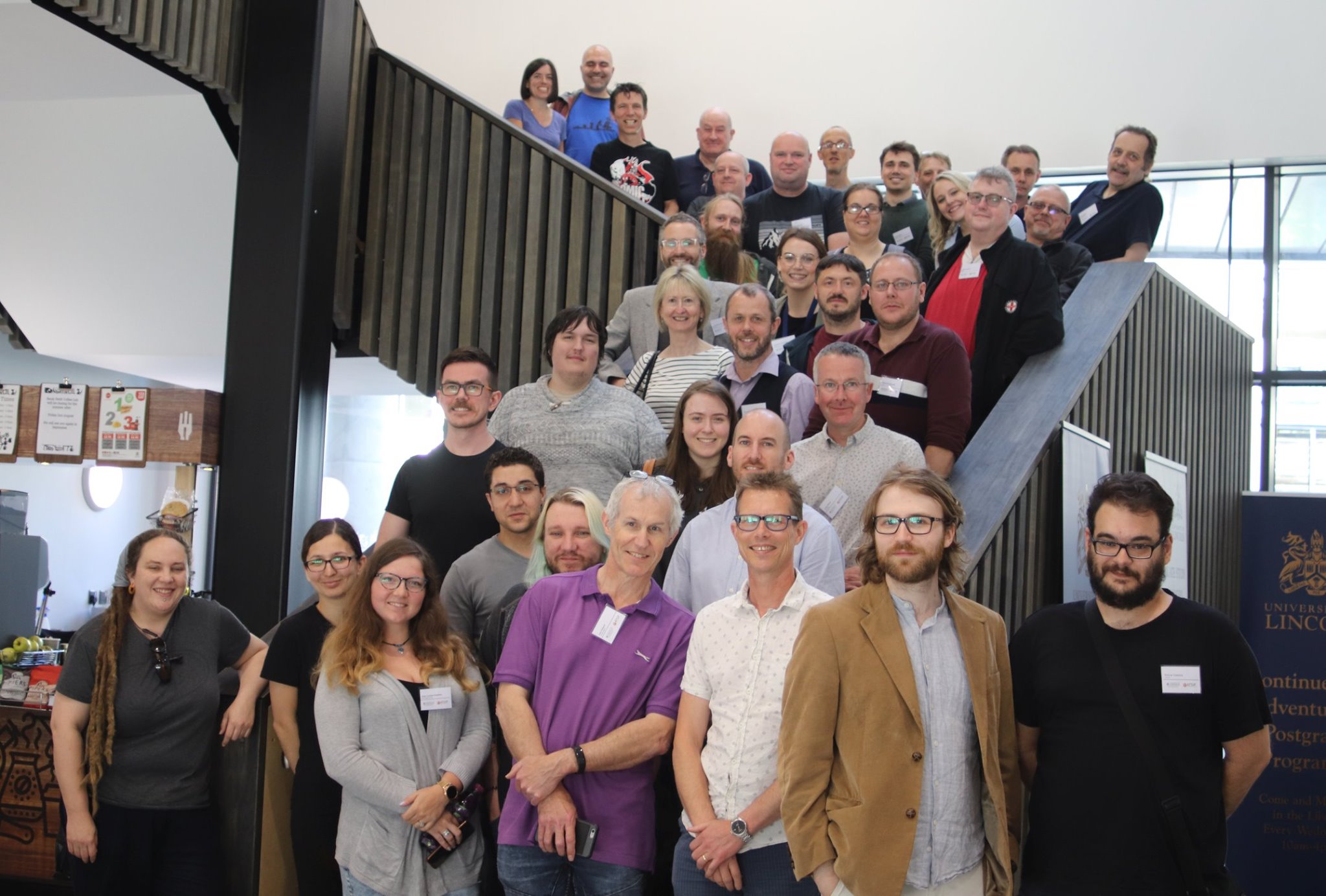Pictured: ATSiP Conference Photo 2019
For those who are unaware, the Association of Technical Staff in Psychology (known as ATSiP) is a fairly self-descriptive name for the group of people who recently met in Lincoln for the 2019 ATSiP Annual Conference. Despite a personal reluctance towards ‘networking’ – it turns out that meeting up with a group of likeminded people to demonstrate latest technology, share best practices and have general ‘constructive conversations’ about the idiosyncrasies of working with and supporting academics – can be hugely beneficial. And not just by hearing about implementable solutions to common work-based problems; but in experiencing shared understanding of hard working, talented individuals who are quite often underappreciated and overstretched in their vast roles, which are crucial to teaching, research and the general running their respective departments.
This year’s conference was packed full of interesting and inspiring talks, as varied as the specialisations of the technicians’ who watched them. From programming and running experiments online to finding innovative ways of assessing students’ statistics abilities, the conference definitely has something to be brought home and shared with semi-interested academics. Being part of a specialist network of technicians also helps in resolving common work place obstacles. Department challenges such as equipment loans and room bookings, as well as top-down ‘streamlining’ concepts such as centralisation, do not seem as bad when you understand that almost every university has similar problems (although perhaps this makes it worse!)
Talks this year included:
Latest developments in PsychoPy, including Online hosting and PsychoJS; Common problems with eye fixations in driving tasks, and difficulties in using EEG with moving stimuli; Student generated summative quiz, attempting to overcome typical shortcomings of traditional multiple choice assessment; AI and Machine Learning, using Microsoft Azure’s ‘cognitive services’ for face analysis and automatic speech transcription; Panopto, the experience of another university’s venturing into the realms of lecture recording; Gorilla double, including updates and feature enhancements as well as technical comparisons for the online experiment software, as well as bespoke software development and gamification; Components of face analysis, including structural and texture analysis; Emotive Epoc EEG+, demonstrating affordable 14 electrode EEG system suitable for teaching, pilot studies and possibly children; Attendance monitoring system, trials and tribulations of trying to manage and track student attendance; Pedestal Experiment builder, one technician’s attempt to enhance student learning and theoretical understanding through experiment building; Tracksys and NIRs, Near Infra-Red Spectroscopy integrated with multi modal system including hub to synchronise face reader tool, MindWare Physiology and body motion; Artinis fNIR, using functional Near Infra-Red Spectroscopy with small portable devices which also require no gel and have low setup time; EmWave, live biofeedback system with prompts for breathing and parasympathetic nervous system activity tracking.
Combined with a fine dinner at local restaurant Ole Ole Tapas and a tour of the beautiful city of Lincoln (with a few pubs on the way), the 2019 ATSiP Annual Conference was a huge success. In addition to the value of support and innovation, the association’s strong ties with the ‘BPS’ and movements such as the ‘Technician Commitment’ make it invaluable in supporting the progress and development of Psychology Technician’s across the country. Next year will be the 45th Annual ATSiP Conference, and I for one hope it will continue for many more after.
Richard Weatherall
 psychology
psychology Mark Titus
Mark Titus 1948
1948



Really interesting topics; I’m a bit disappointed I didn’t go! Any chance you can offer a detailed summary of all of it?!
Hi Philip!
ATSiP usually produces its own detailed summary at http://atsip.herts.ac.uk, however if there is a specific topic you would like more information about, give us an email at psytech@canterbury.ac.uk and i’ll do my best to answer your questions!
Hi Richard,
Thanks for getting back so quickly. Unfortunately it looks like they haven’t touched the website since 2016 so I’ll email you directly.